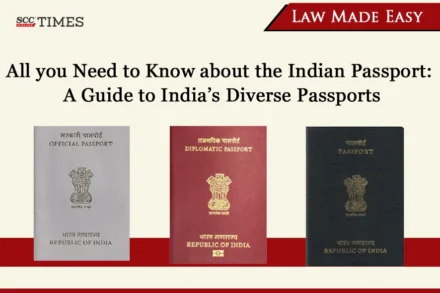
All you Need to Know about the Indian Passport: A Guide to India’s Diverse Passports
Explore the many kinds of passports stamped with Republic of India on the front
Continue reading
Explore the many kinds of passports stamped with Republic of India on the front
Continue reading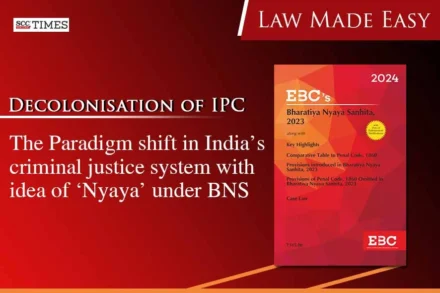
The Bharatiya Nyaya Sanhita, 2023 flows in the right direction, replacing the Penal Code, 1860 and is enforced from 01-07-2024.
Continue reading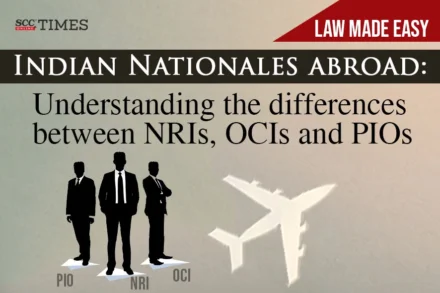
To bring the “Indians” abroad closer to home, the Government of India offers different kinds of statuses, which are known as NRIs, OCIs and PIOs.
Continue reading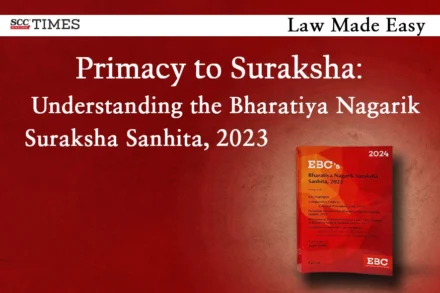
The BNSS adopts a “citizen-centric” approach, balancing the rights of both the victims and the accused, respecting the human rights principles.
Continue reading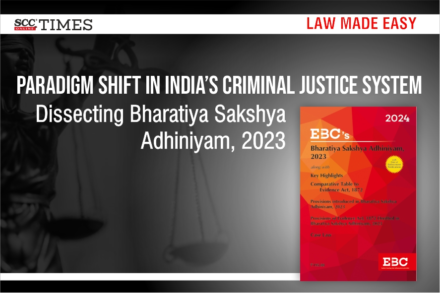
The BSA represents a landmark moment in India’s legal landscape, signalling a shift towards modernization and the digital era. It replaces archaic terminologies, expands the admissibility of evidence, and embraces technology.
Continue reading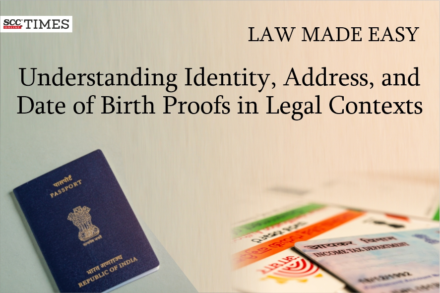
These proofs serve as pillars of trust and accountability in numerous domains, from financial transactions to access to social services. Balancing innovation with protection remains paramount to ensure that identity verification mechanisms remain reliable and secure in an increasingly digitized world.
Continue reading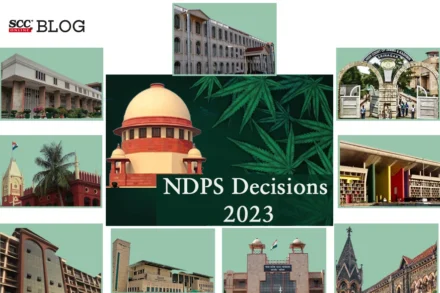
If you are in search of important NDPS Supreme Court judgments, orders of 2023, or for that matter, the judgments and orders of High Courts related to specific aspects of NDPS Act, this blog provides important matters covered in 2023.
Continue reading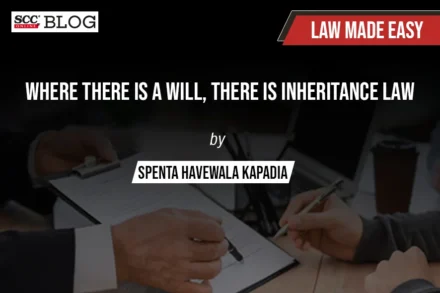
by Spenta Havewala Kapadia*
A Rundown on Law Relating to Wills, Letters of Administration, Succession Certificates and Heirship Certificates
Continue reading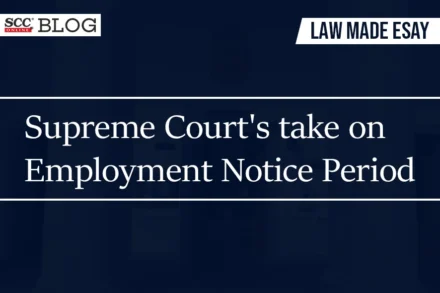
The transition phase from one workplace to another is a period full of uncertainty and doubts. They say that notice period is your honeymoon period, but for some, it turns out to be a perfect example of “Aag ka dariyaa hai…..doob ke jaana hai”.
Continue reading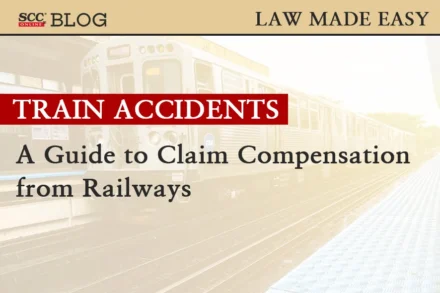
Around 22 benches of the Railway claims Tribunal have been set up at different parts of the country to decide the application for compensation
Continue reading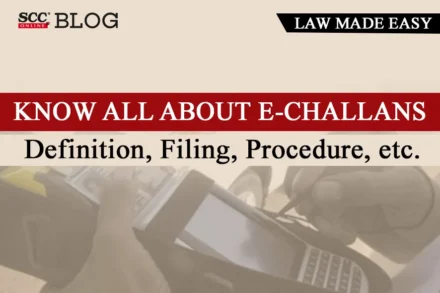
This article aims to explore the concept of Traffic E-challans in entirety, the procedure involved and the role of Lok Adalat pertaining to the same.
Continue reading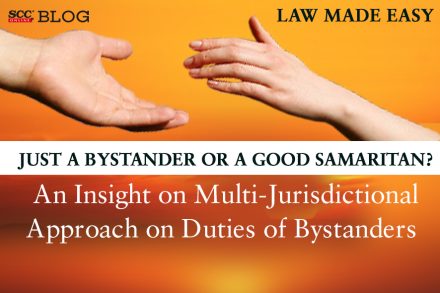
Every human being whose life is in peril must have a right to assistance.
Continue reading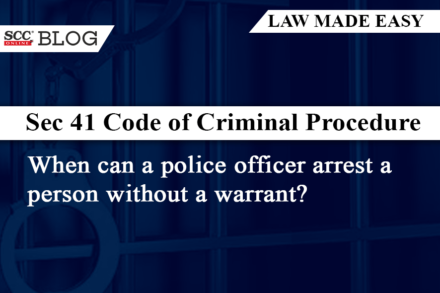
Can police officers arrest a person without reason? The answer is ‘NO’ and the explanation is provided in the blog below with an attempt to make the law easy and understandable.
Continue reading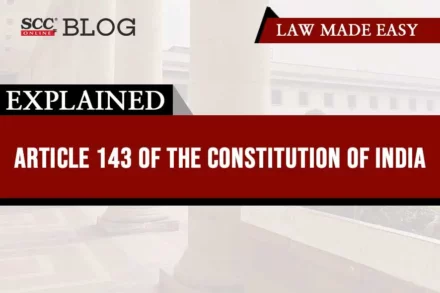
The first reference under Article 143 was made in the Delhi Laws case, wherein, the President referred three questions to the Supreme Court for its opinion.
Continue reading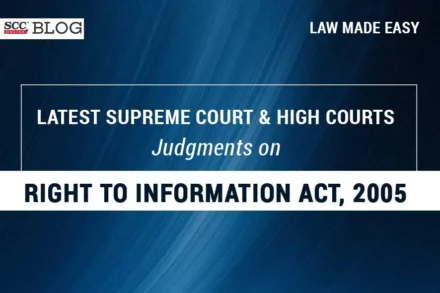
“The Right to Information is not meant for gratifying idle curiosity or mere inquisitiveness but is essential for the effective functioning of democracy, transparency and accountability as sine qua non in a genuine democracy” – Former Attorney General Soli J. Sorabjee
Continue reading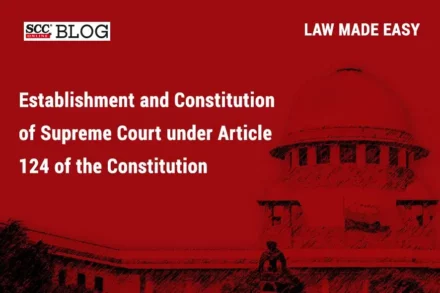
The makers of the Constitution of India advocated for Separation of Power and demarcated the limits, roles and functions of every organ
Continue reading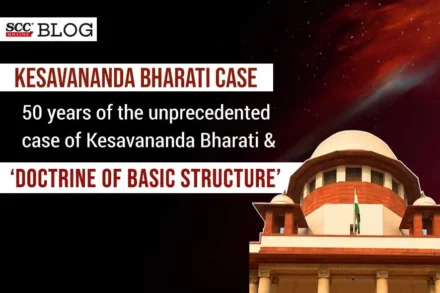
Here is snippet on the evolution of ‘Doctrine of Basic Structure' in the Independent India and how the biggest legal battle continued between the Judiciary and the Legislature, as the landmark case of Kesavananda Bharati v State of Kerela (1973) 4 SCC 225 enters its Golden Jubilee year.
Continue reading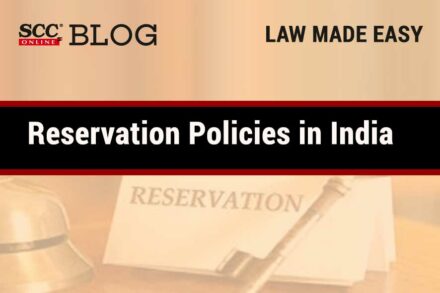
Reservation as a concept is very wide. Different people understand reservation to mean different things. One view of reservation as a generic
Continue reading
We often get to hear the term ‘ancestral property’, but the exact meaning of the term remains unknown to most of us.
Continue reading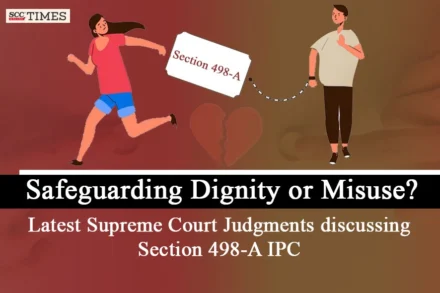
Supreme Court continues to shape the interpretation and application of Section 498-A IPC, balancing the need to protect women from cruelty and dowry harassment with concerns over potential misuse. Recent rulings provide significant clarity on the scope and limitations of this provision, reaffirming its importance while addressing safeguards to prevent abuse.
Continue reading